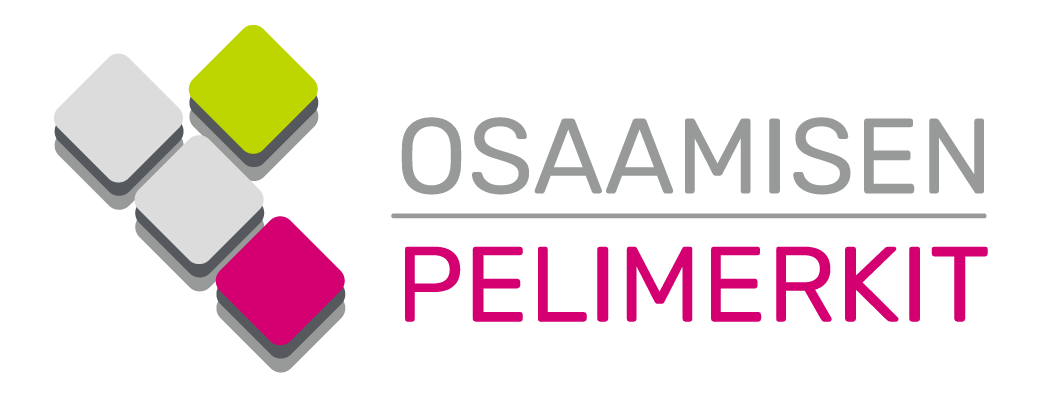In the afternoon of 9th October we had a chance to hear Joonas Turner, who gave a presentation about sound design in games, and showed what an FMOD-program can do with sounds. FMOD is available for free for small budget projects https://www.fmod.com/. After that a panel discussion with Joonas, Ilmari Hakkola, Niilo Takalainen and Mikko Saarinen was lead by Mikko Raita from Stadin Ammattiopisto.
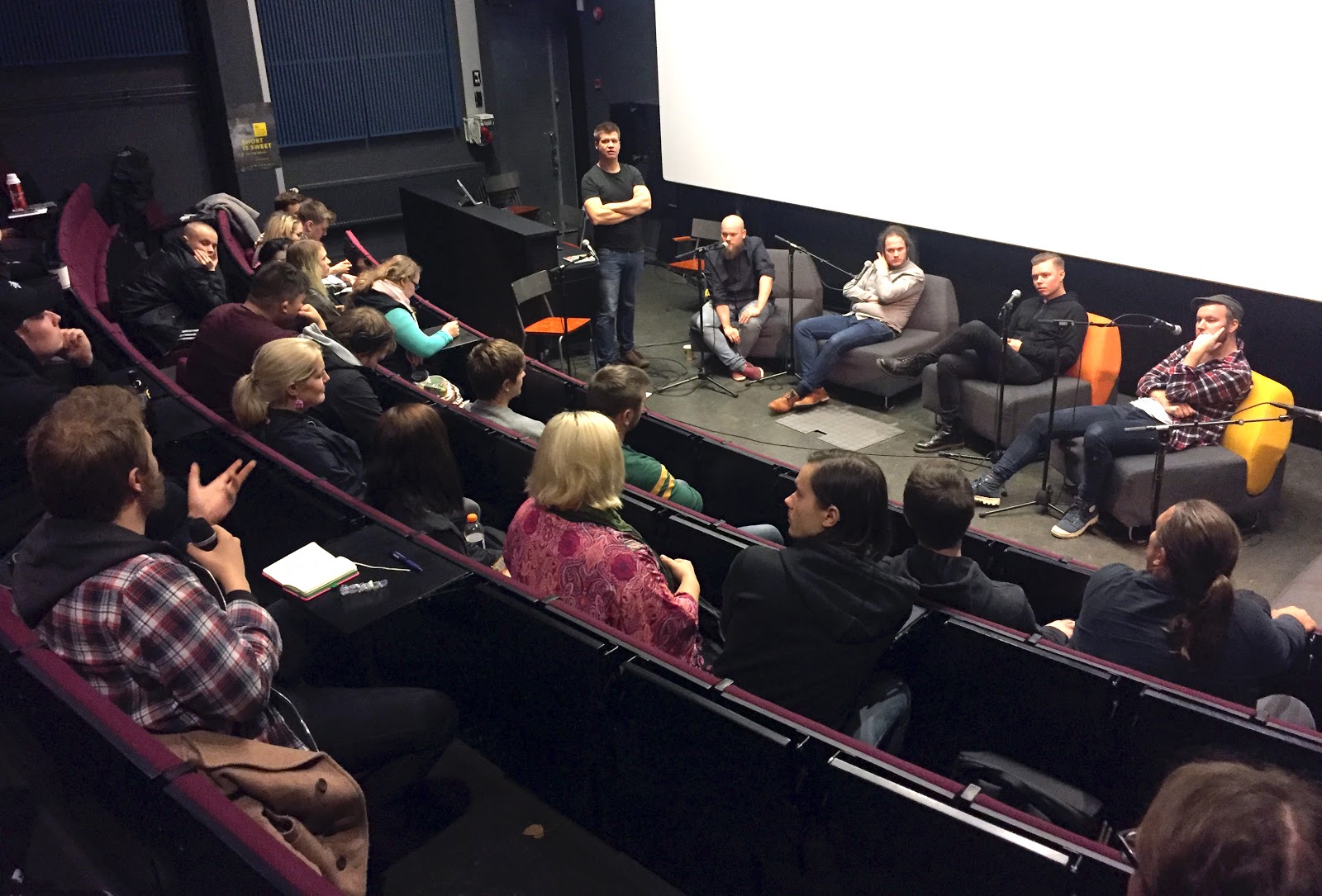
Audience wants to know more. Photo: Saija Heinonen
Sound design in games includes, for example, ambient sound, sound effects and narration. Sometimes the sound can be even better than images. With the sound you can create characters and worlds. It has also happened that the character is born from a sound. Sound can also help in branding, if the sound or voice of a character, for example, is very recognizable.
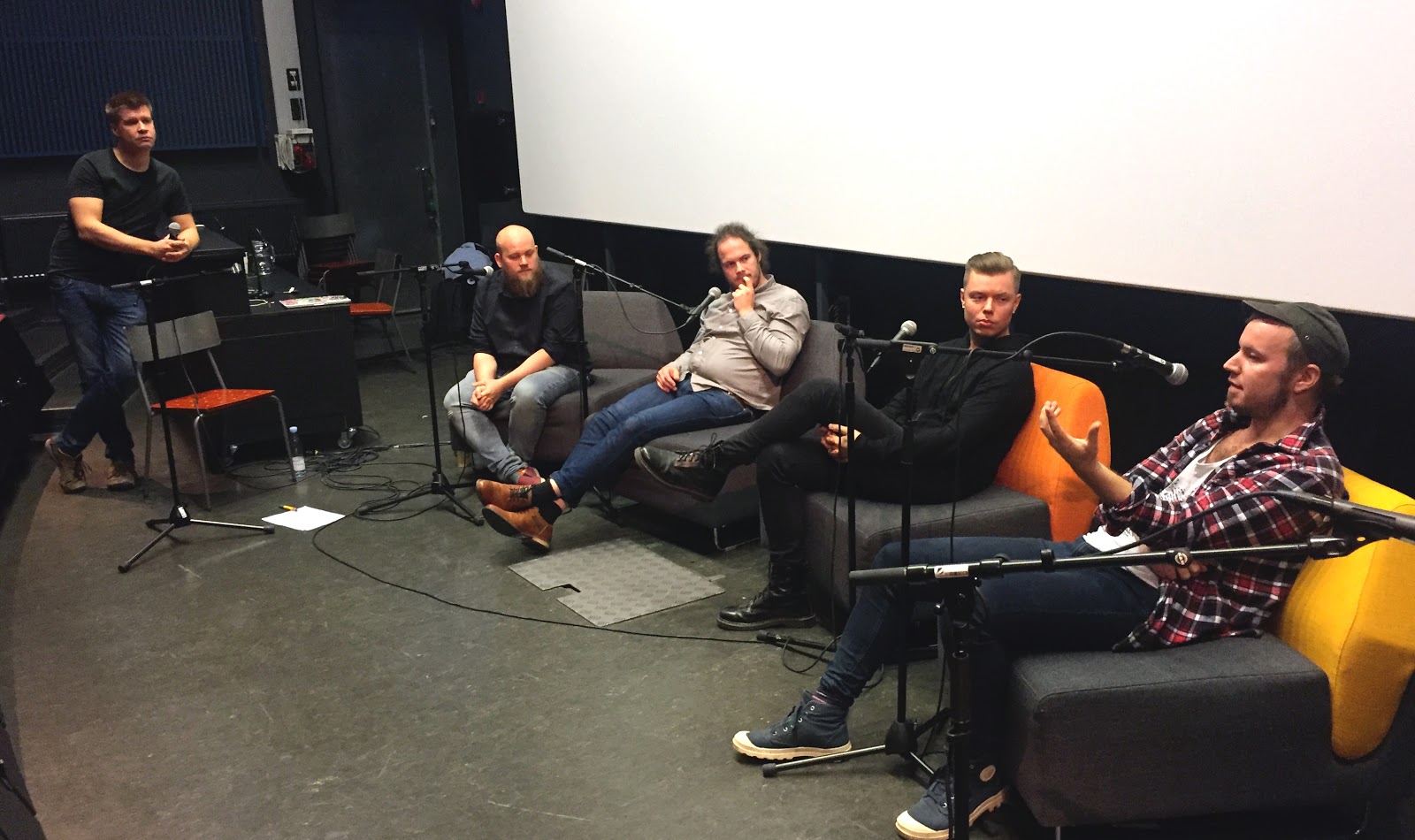
Panel moderated by Mikko Raita, with Joonas Turner, Niilo Takalainen, Mikko Saarinen and Ilmari Hakkola. Photo: Saija Heinonen
The most important things in sound design for video games are planning, planning and planning. If you have a “writer’s block”, you can always return to your plans. All panelists agreed that building of audio culture never ends. A lot of justification must have been done to get to this point where we are now.
Some tips for game makers interested in sound?
Think about the platform; do you want good sound on speakers or on a phone. If you don’t have a lot of money and time for both, do just the other. All sounds don’t work on phones.
Participate in Game Jams and conferences! It’s the best way to learn and meet people. Creating a network is important and useful. It can be also done online, Marshall McGee, Cujo Sound and Blip Sounds are useful links, as well as a Facebook site https://www.facebook.com/Finnish-Game-Audio-Professionals-Association-410593086099782/.
Panelists:
Sound game designer and composer Joonas Turner from E-Studio, worked on Nuclear Throne, Broforce, The Badland series, Downwell and his ownTormentor X Punisher. Currently working on games such as Atomicrops, Bleak Sword, Noita and The Oddinary Highway as well as designing his new game.
Sound designer and composer Ilmari Hakkola, 15 years in the gaming industry and 6 years as Head of Audio at Rovio. Currently freelance and building the gaming company 4Good Games as well as the sound company Tonally.
Sound designer and composer Niilo Takalainen from E-studio, Noita, Broforce, Tormentor X Punisher, Environmental Station Alpha and Badland 2.
Sound designer and composer Mikko Gee Saarinen from Next Games, currently working on a Blade Runner mobile game, also worked on The Walking Dead: No Man’s Land.
Freebies and monetization?
On Thursday 11th October was time to have a specialist lecture by John Rantala, Publishing Director of Round Zero. His keynote was on Free-to-play Game Design and Monetization Pitfalls. In his presentation the main message was that it’s important to start planning the monetization mechanisms early on game development.
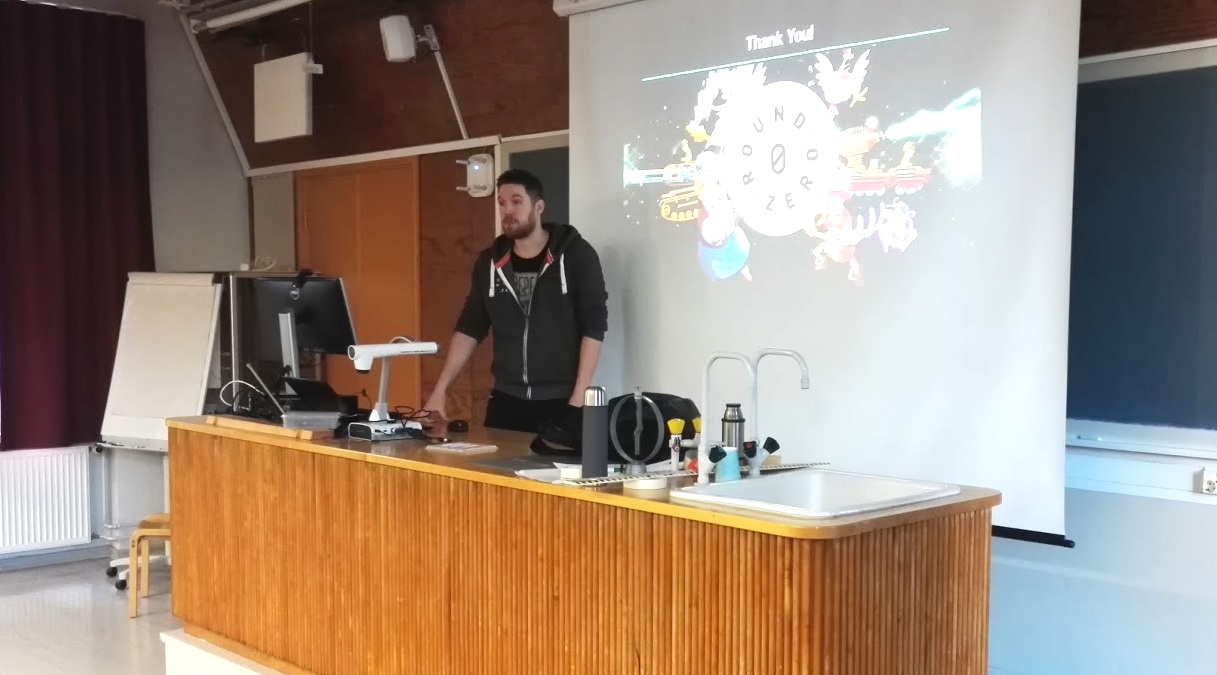
John Rantala on monetization of free-to-play games. Photo: Milla Åman
According to Rantala, before launching globally, the engagement and monetization evaluation rounds as well as soft launch should take place. If monetization is added last, it usually breaks the gaming mechanism in one way or another. Later added monetization solutions usually feel forced.
Rantala reminded of the importance to balance the solutions in order to gain success which is measurable with retention rate. Gaining a great retention, five things are to be considered; onboarding, difficulty curve, rewarding, infinite content, and offering incentives to player.
Students asked for more detailed examples, such as how to implement product placement, banner ads, subscription-based monetization and showing less ads in exchange for purchases. Mainly all of these monetization mechanisms are in use or at least possible to use, but one solution does not cover all situations. For instance banner ads do not create enough revenues so additional methods are usually needed.
Games Factory – a place to start
Afternoon continued with a field trip to Games Factory, an incubator of new game start-ups and working space for more seasoned experts.
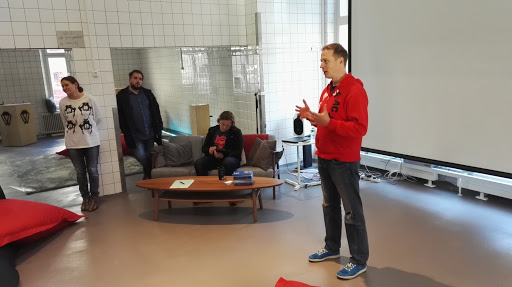
Jyri Partanen of Games Factory up front. Photo: Milla Åman
Jyri Partanen, COO & chairman of Games Factory gave the welcoming speech, warning about the industry’s demanding nature and stressful working culture.
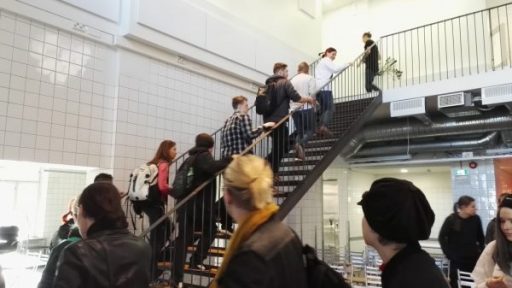
Checking out the house. Photo: Milla Åman
A house tour was taken, old kitchen and restaurant building has turned into working space for creative game industry companies, freelancers and experts.
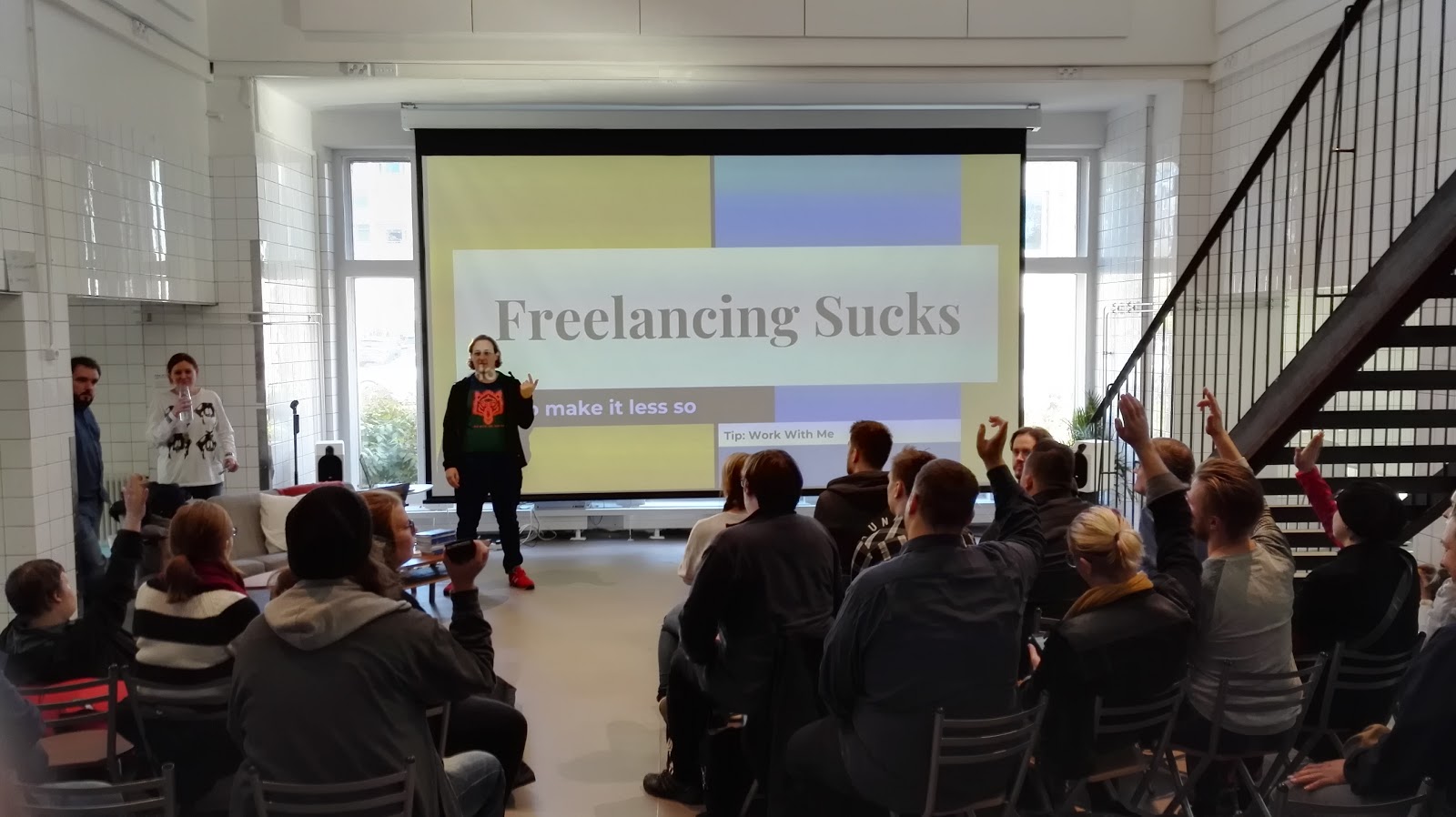
Gregory Pellechi shared freelancing advices. Photo: Milla Åman
Another inspiring speech was given by Gregory Pellechi with the title Freelancing sucks. In his presentation, the harsh realities of being a freelancer were listed. As a freelancer one has many roles: accounting, marketing, networking, technology and security, personnel development, client relationships, and the actual work. Also, for a freelancer work the pricing was covered: the price should include insurance, rent, utilities, travel, meetings, training, equipment… all the necessary customer acquisition costs – before the actual working hours.
The conclusion was a set of recommendations, suit for all freelancers: ask money up front, don’t make per hour contracts, know your rights, know your value. Hire accountant and outsource other time-consuming tasks.
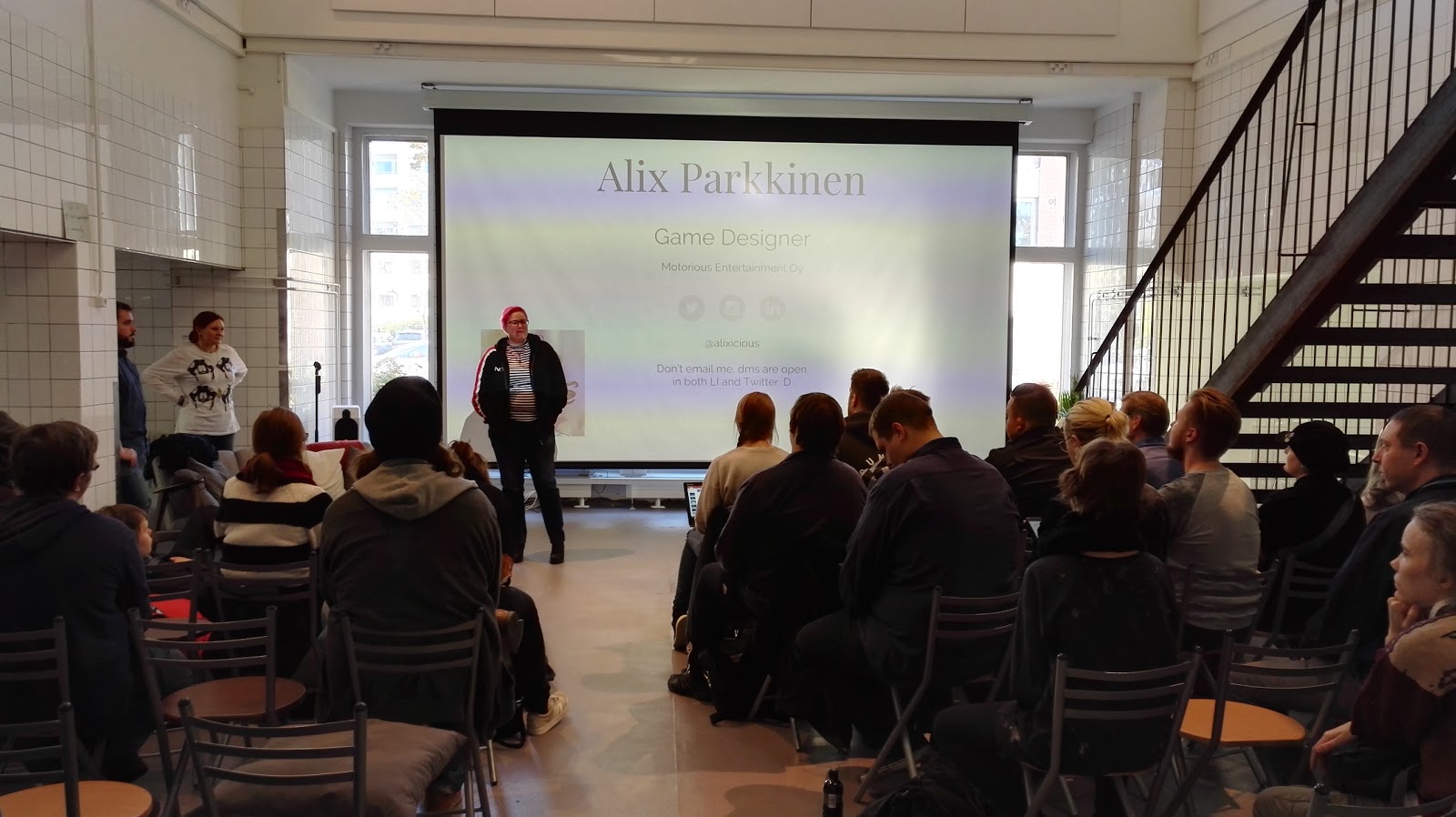
Alix Parkkinen emphasized the meaning of team members. Photo: Milla Åman
Alix Parkkinen from Motorius Games preached about importance of finding a team where one feels welcomed and all team members’ talent compliment each other. Her experiences were not limited to only one nation nor city but gaining experience from different settings. She emphasized how important it is to keep on learning different skills.
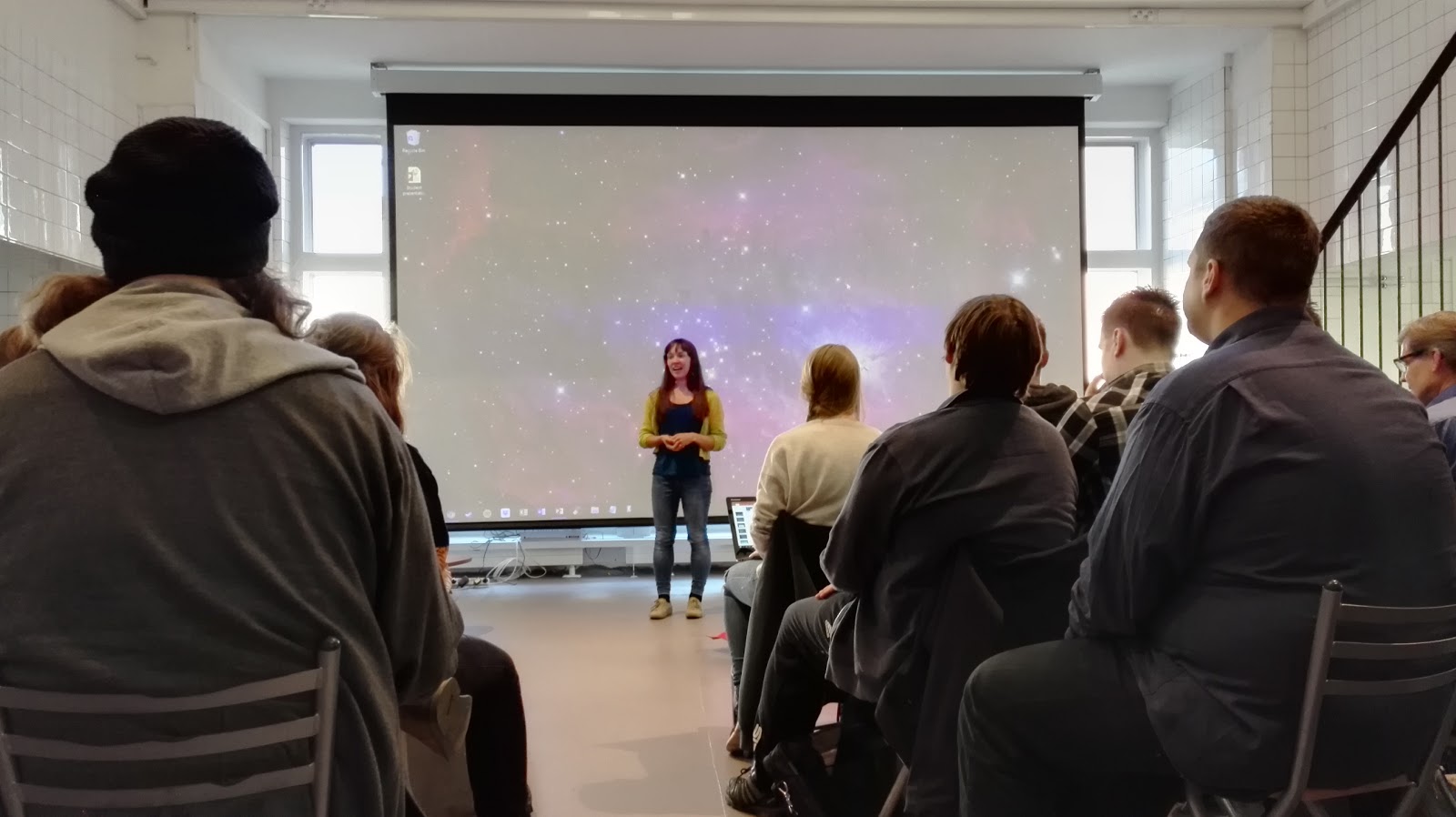
Marjo Sutinen was also seeing teamwork the core to success. Photo: Milla Åman
Marjo Sutinen continued with inspirational speech on the team selection. She claimed not being sure how she pulled together her current dream team members, but blaimed it on the odds. Her company Critical Charm was created last June.

Kim Bäckroos (left) and Suvi Kiviniemi (right) selling Games Factory’s services. Photo: Milla Åman
Kim Bäckroos, CEO of Games Factory Talents enlightened more of Games Factory and its operations; events, fast-tracking students and Talents programme, a joint venture formed by Finnish Game Day and Games Factory, helping game companies to find talent in Finland and abroad. Key activities in talent attraction are Games Job Fairs and Matchmaking developers to Finnish game companies. Games Factory will open an e-sports center soon.
Followed by Suvi Kiviniemi, Head of Games Factory Farm League introduced the services for newbies, with collaborative community, International network, mentorship, subcontracting deals, services and infrastructure and industry events to boost networking.
